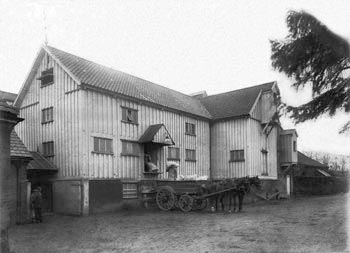 |
|
c.1907
|
|
Aylsham
Steam Mill |
 |
|
c.1907
|
|
By 1864 Aylsham steam mill had been built and was running in competition to the watermill. The steam mill was built only a hundred yards away from the watermill, on the other side of the canal in the industrial hamlet of Dunkirk. The mills both worked independently for half a century until Barclay, Pallett and Co., having acquired the steam mill in 1907, bought the watermill in 1914 at auction. The roller mill finally closed on 22nd December 1967. |
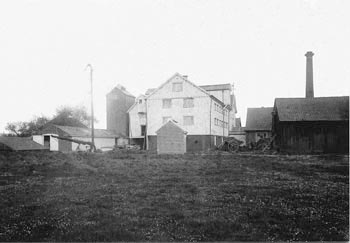 |
|
c.1910
with a wherry in the cut leading under the mill
|
Over the centuries
the whole area was moulded and developed with Millgate becoming a hub of
industrial activity once the 11 mile long Aylsham_Navigation was opened on completion of the new canal basin excavated
alongside the mill in October 1779. A channel was cut to the north of the
mill and a staithe with warehousing was built to house the goods transported
in and out by wherry. By 1854 wherries plied weekly between Aylsham and
Yarmouth. At the height of the water transport years 26 wherries were serving
Aylsham. In 1880 the railway arrived. Aylsham North's M&GN station a few hundred yards away took over some of the traffic when it opened, as did the GER's Aylsham South station. Nearby pubs and inns such as The Anchor thrived for many generations. |
In 1894, a young man
called George William Miller died in the mill machinery aged 20. He was buried in Itteringham churchyard as he used to live in that village. |
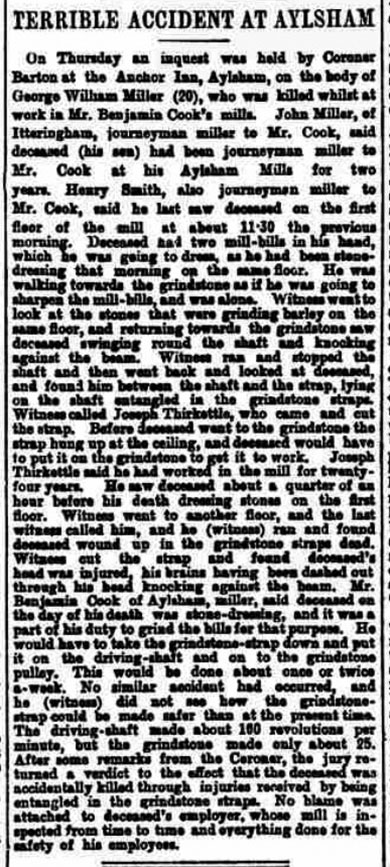 |
Eastern Evening News - 17th November 1894 |
|
The Aylsham Navigation |
|
| 1773: Navigation
authorised by an Act of Parliament 1774: Work started 1779: Navigation opened, running for 9½ miles with 5 locks, one at each of the mills
26th August 1912: The great flood effectively closed the Naviagation by destroying the locks 1974: Aylsham Canal Basin filled in |
The disastrous
flood of August 1912 destroyed many of the locks of the Aylsham_Navigation. These were never repaired as the commissioners had insufficient
funds. Traffic to Aylsham was thus reduced to road and rail only. The wherry
Zulu was on its way back from Aylsham to the coast when it was caught by
the flood. After the destruction of the lock gates the Zulu had to be carried
over the road at Buxton. |
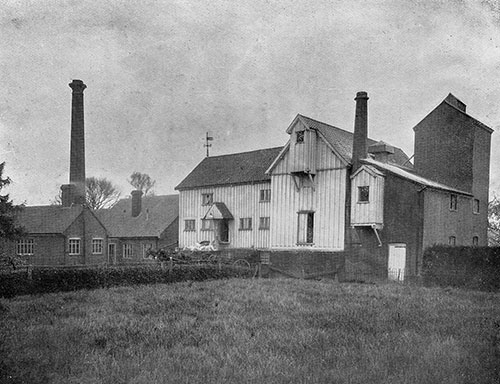 |
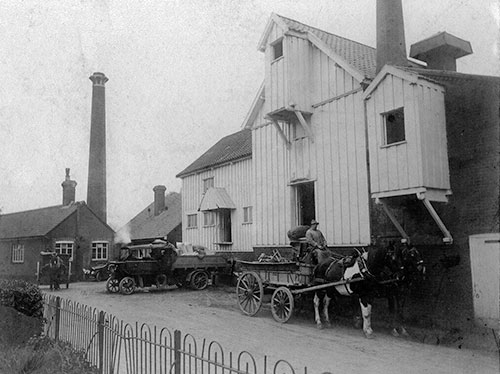 |
|
c.1910
|
Foden steam lorry with a horse and cart from Barclay & Pallet & Co. Ltd, Felmingham c.1920 |
 |
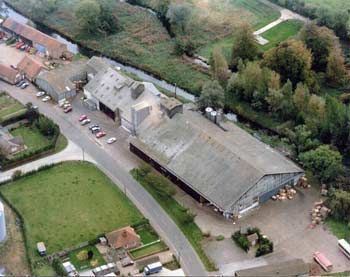 |
1956 |
1985 |
| In the 1950s power was supplied by a Ruston Hornsby 120 h.p. diesel engine. |
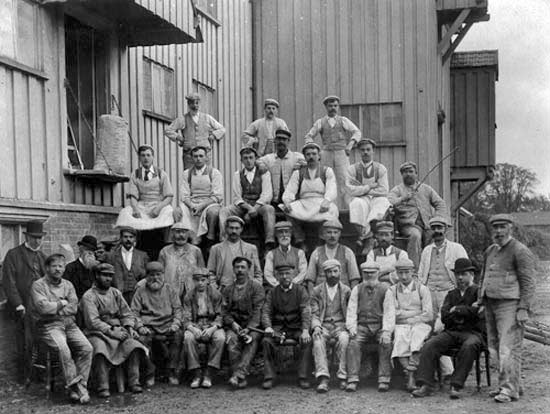 |
|
Workforce
in 1910
|
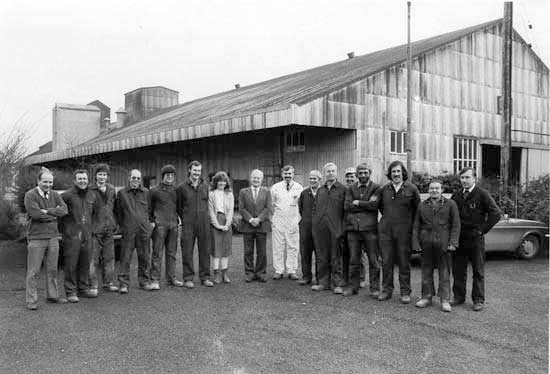 |
|
Workforce
in February 1985
|
L-R: Bill Brady,
Nigel Watts, John Wilton, Brian Medler, Alan Glasspoole, Tony Tortice, Donna
Clements, Ben Rust, Philip Howlett, Roy Soames, David Southgate, Derek Medler,
Clive Philpott, Kelly Shreeve, Mervyn Martins, Peter Spooner |

|
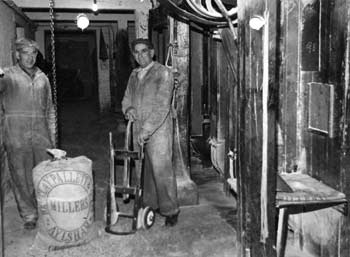
|
Roller mill machinery December 1967 |
December 1967 |
| Above photos
taken just prior to closure on 22nd December 1967. Left hand photo - E. Yaxley. Right hand photo - E. Yaxley and F. Jarvis |
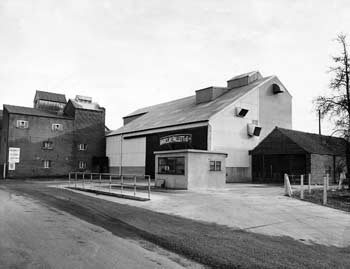 |
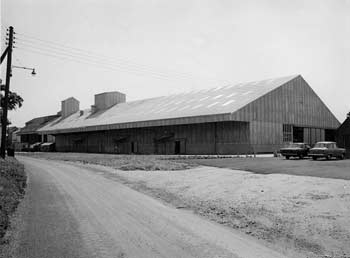 |
|
c.1956
|
c.1969 |
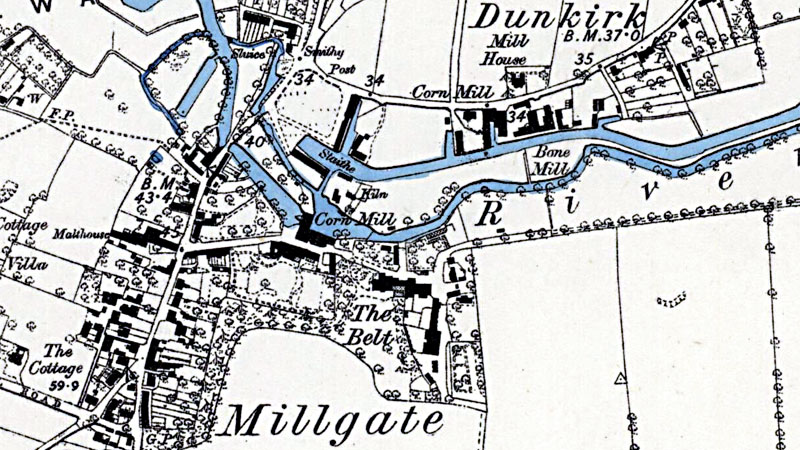 |
O.S. Map 1885 - mill marked as Corn Mill under Dunkirk Courtesy of NLS map images |
|
White's 1845:
Michael Cadge |
If you have any memories, anecdotes or photos please let us know and we may be able to use them to update the site. By all means telephone 07836 675369 or
|
| Nat Grid Ref TG 19992756 | Copyright © Jonathan Neville 2025 |